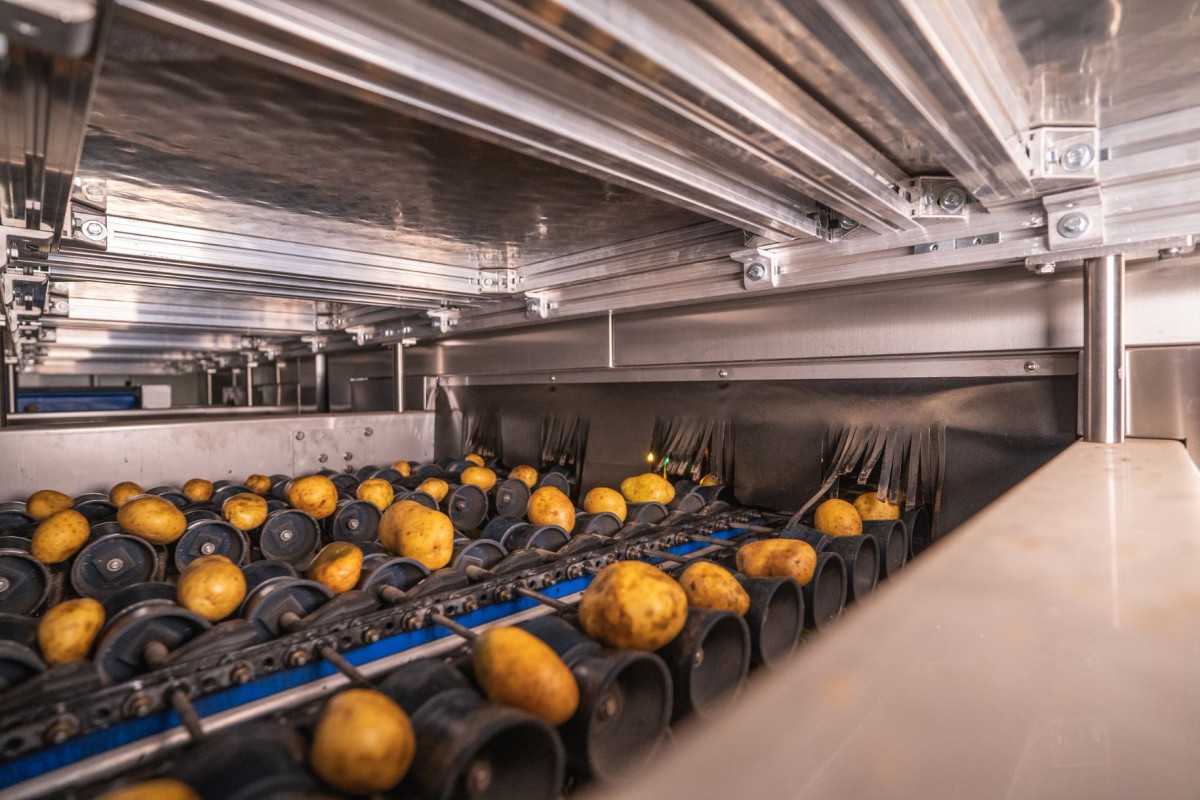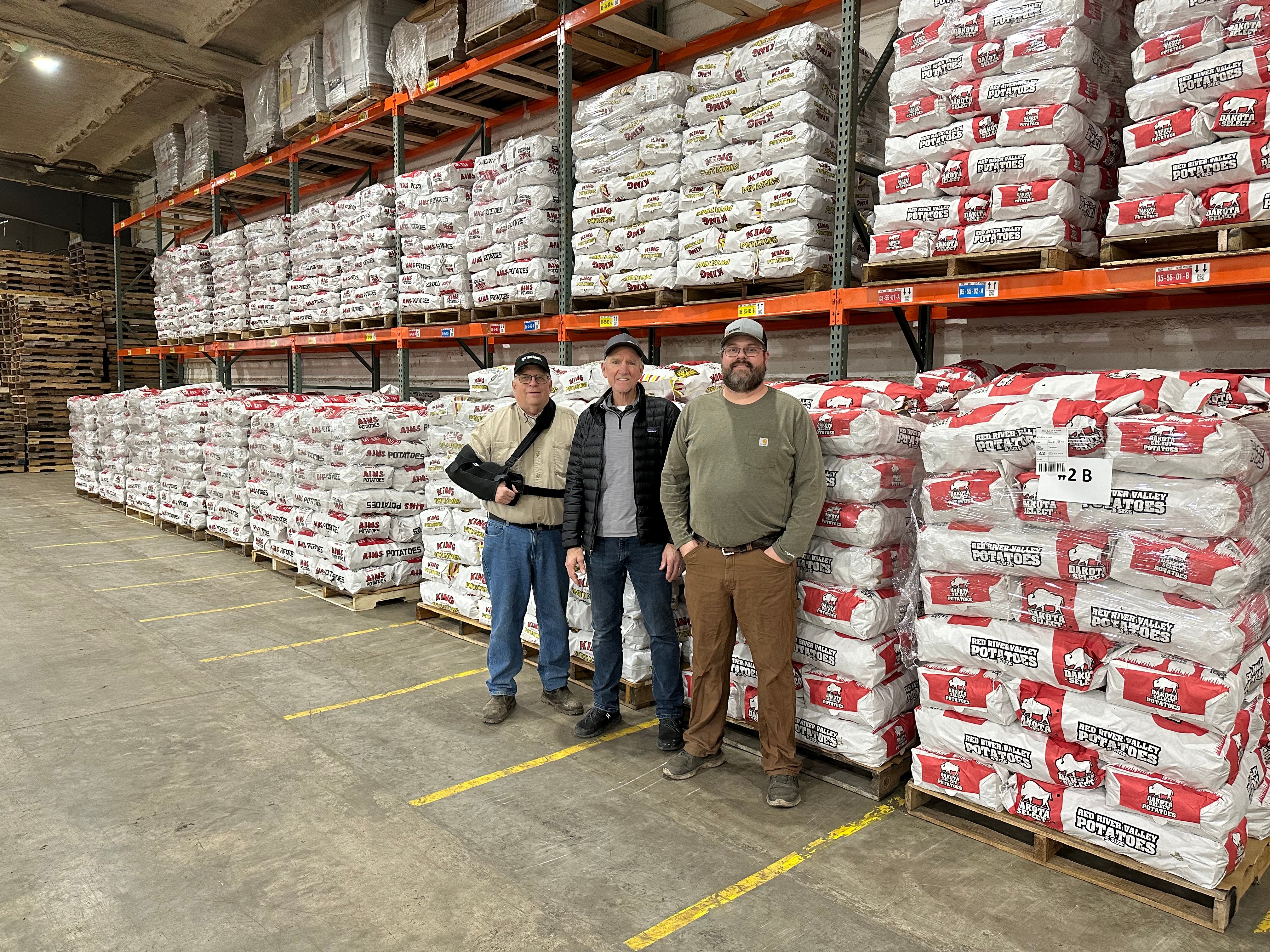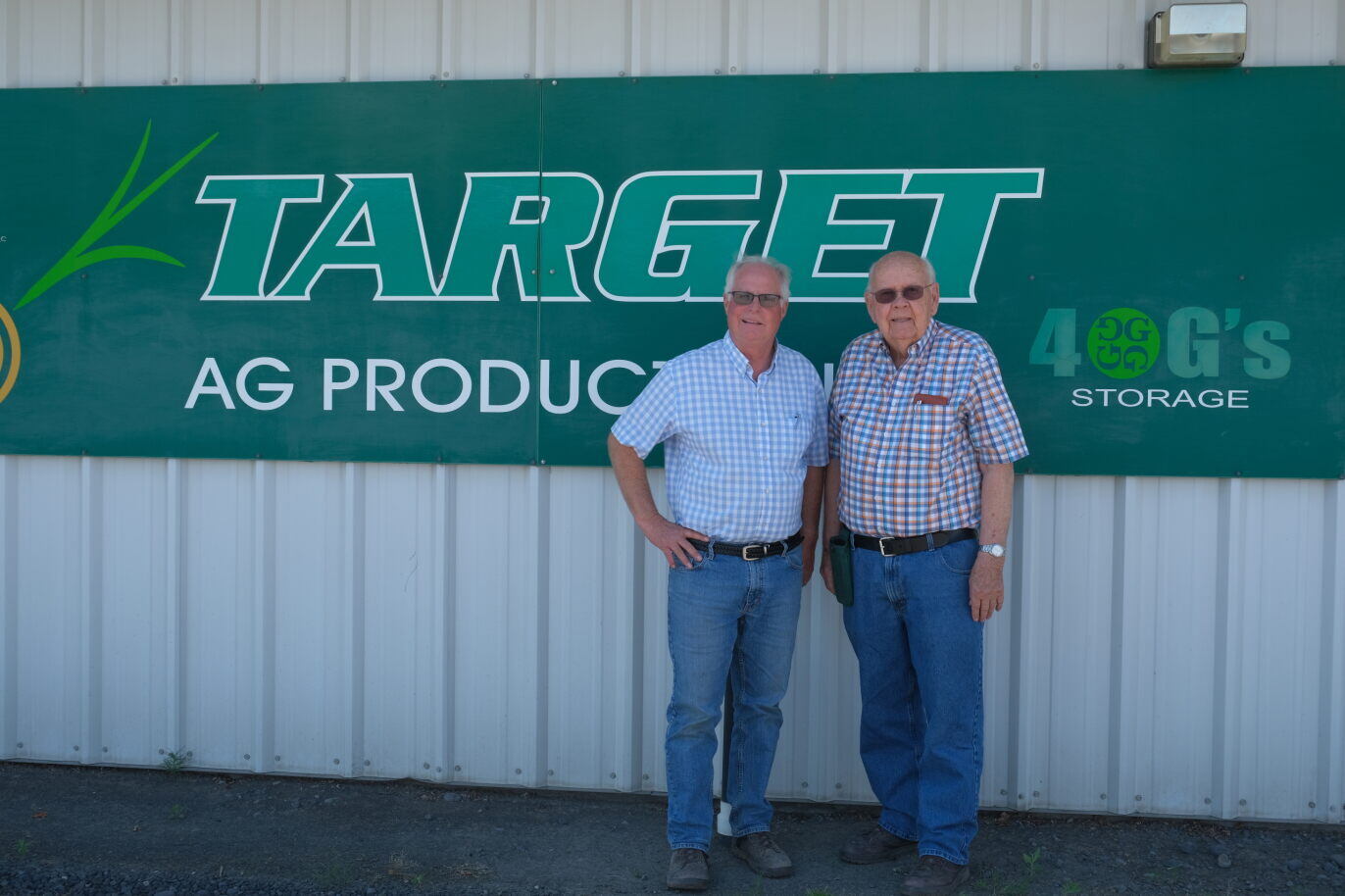Fast-growing potato supplier in Australia
Zerella Fresh was founded in 1936 (Virginia, South of Australia) and is since 2009 a part of the The Pye Group family. Zerella is committed to being Australia’s leading supplier and marketer of fresh produce. They strive for consistent potato quality. The company is growing and handling more than 100,000 tonnes of potatoes, 40,000 tonnes of onions, and 30,000 tonnes of carrots annually with over 18,000 hectares of cropping land.
Every day, Zerella’s fresh produce is distributed to major supermarkets (Safeway, Countdown, Woolworths, Coles, Aldi), restaurants, the process industry (mashed potatoes) and exported abroad.
What are the challenges of an established brand name selling such large quantities of produce?
These are the 3 biggest challenges:
- Handling the huge amount of throughput.
- Delivering consistent quality.
- The increasingly specific requirements of changing markets.
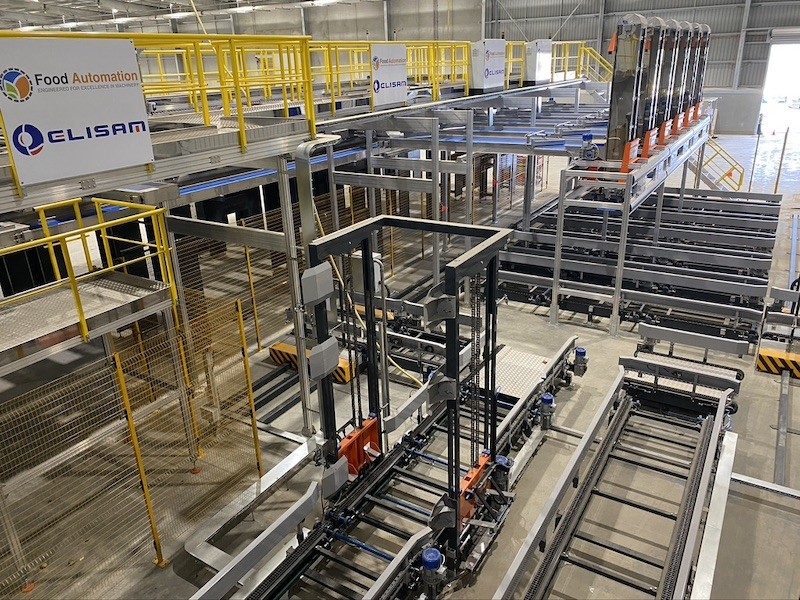
Why are these challenges important?
1. Handling the huge amount of throughput
One of the main goals is to deal with the high throughput. With the amount of land they own, it became increasingly challenging to process the complete harvest into saleable products. How do you deal with the challenge of handling all this produce? Zerella obviously wants to get the full potential of yields from the harvest.
The rising demand of the premium potato: Spud Lite
Zerella has a premium product that’s called Spud Lite. It’s a low carbohydrate potato, unique for it’s customers and by far their most profitable product. And given the rise in low-carb diets, the product is hugely popular. In order to keep up with the demands this product has created for them, they need to keep up with the throughput. Of course Zerella wants to maintain the integrity of their branded product.
2. Delivering consistent potato quality
Another important goal is to deliver consistent quality that meet or surpass the quality requirements and standards expected by customers. On top of that, there are strict quality controls that put the market under a magnifying glass. What leaves the country must meet Australian minimum health and safety standards.
Mechanical damage
In the old situation, there were potatoes whose quality they could not guarantee, because the defects were not sufficiently visible. Harvest potatoes by huge shipping containers, diggers. You have to be rough to get them out of the ground. This causes mechanical damage to some potatoes. They could not sort this out before. The Elisam sorter is able to detect farmer related mechanical damage, so the diggers can do their job more carefree because they know the damaged potatoes will get sorted far more effectively. On the farm side they can work more efficiently.
Sprouts are difficult to detect
Another example are the natural occurring sprouts on potatoes. It is very hard to detect these sprouts because of the shape and colour of potatoes. Discovering these defects was limited in the situation 2 years ago. On top of that, Zerella is at risk of heavy rain in the area. They harvest before the rainy season because otherwise the potatoes will sprout like crazy. On the other hand, you can’t always protect your crop from this. Previously, they would leave these potatoes in the ground because it takes more time and money to harvest and sort these products. About 100 tons of potatoes that were actually good remained in the ground because it was not possible to process them.
The grader and camera system is able to deal with this very difficult but natural part of potato farming that has been a physical constrain previously on traditional hardware/graders/agricultural hardware.
3. The increasingly specific requirements of changing markets
A third challenge is the increasingly specific market demands of an ever-changing market. For example: 10 kg bag has to made up of 60% of a certain category. Zerella suffered from inefficiencies in this process and struggled to fill all the specific packages. Previously, they had to grade first and then pack manually to meet customers’ needs. It’s hard to find staff because a lot of people from the nearest city already work for them. That’s why it’s important for the grader to do the heavy lifting and be as automated as possible because there are litteraly no more people to find.
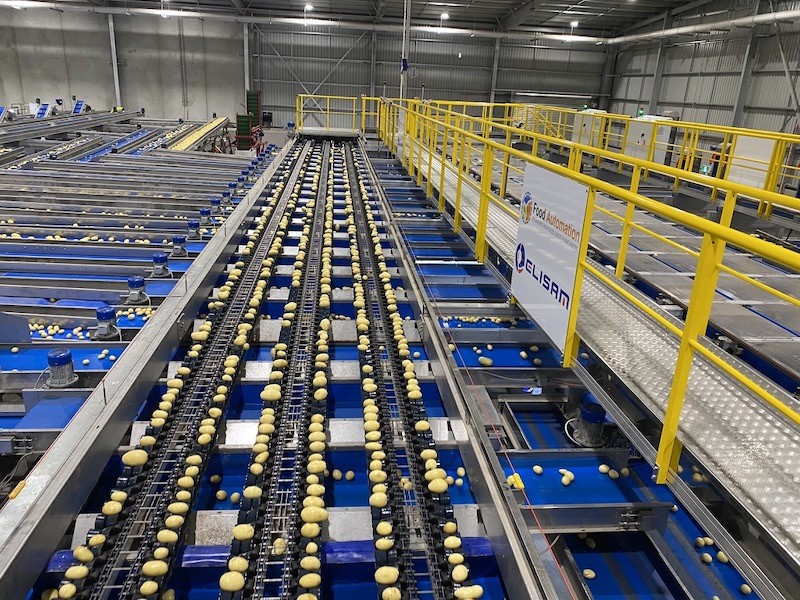
The search for improvements in throughput, quality and flexibility
Zerella was looking for a solution and a supplier that is able to run a high throughput, deliver consistent quality and offer flexibility regarding specific requirements based on product issues, market situation and customer needs.
How did Zerella address these challenges to achieve the goals?
Elisam GranTorino Potato Grader
In 2021, Zerella has invested in 2 Elisam GranTorino Potato Grader machines of 6 lanes and 6 automatic bin fillers. Different rollers for small/big potatoes have also been purchased to sort different sizes of potatoes.
Why Elisam?
Zerella chose the Elisam machine because of low drops, gentle handing, high throughput. Depending on potato size, the machine can grade and sort over 4500kg (10.000 lbs ) of potatoes per hour per lane. Finally, it was also chosen because of the reliability of the machine. Machinery that’s build to last and hardly skips a beat.
Ellips optical grading technology
Added to this is the investment in Ellips optical grading technology and the additional flexible TrueSort system. Zerella has chosen the external quality, (calculated) weight, size and color sorting capabilities. Internal quality was not included in the scope, but is always possible to add later to the Ellips system (click here to read the potato internal quality case with Wilhelm Weyers).
Why Ellips?
- Zerella chose Ellips because the camera system can keep up with the demand which makes the higher throughput possible as well.
- In addition, the software makes it possible to remove bad quality / all potatoes with a defect, so that now all potatoes can be processed with a guarantee to consistency quality.
- Third, Ellips has the Pack2Spec capability, which gives Zerella flexibility with setting the desired specifications of packages, allowing them to respond to ever-changing requirements.
Finally, it was important to Zerella that there is good 24/7 support available regarding electrical, mechanical and software assistance. Both online and in person. The operators are trained to get the most out of the grading system.
A streamlined process for an optimal layout of the sorting line.
This project was largely made possible by our exclusive Australian partner Food Automation. Chris de Krom has spent years building up a relationship with the Pye group, so that the specific wishes have been clearly defined. Food Automation provided advice and installation guidance on the optimal layout of the sorting line. A streamlined process is essential for outstanding packing house performance.





